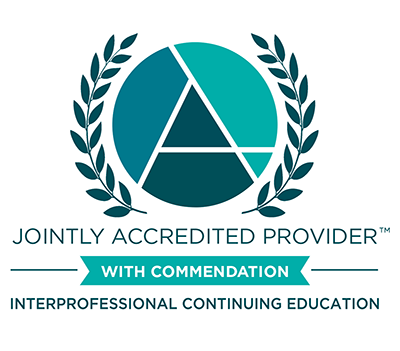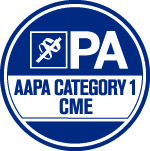UW Health Stroke Continuing Education Series - Part 2, May 7, 2025
Join us virtually during stroke month for learning and partnership as UW Health hosts our second annual stroke continuing education series. Led by distinguished experts in the field, these immersive sessions will foster a collaborative space where clinicians can actively engage with faculty. The participants will have an opportunity to connect, learn, and contribute to the future of cerebrovascular care.
Learners will develop a comprehensive knowledge of stroke, including the differences between hemorrhagic and ischemic strokes, and the specific characteristics of embolic and small vessel strokes. They will identify presenting signs and symptoms, analyze risk factors, and interpret imaging findings.
The sessions are divided into two days. The first part is scheduled for April 30th, 2025, and will cover the topics below:
- Advances in Acute Stroke Treatment: What's New and What's Next
- Etiological Investigation of Stroke in the Hospital Setting and Beyond
- Strategies for Secondary Stroke Prevention: Risk Factor Optimization and Medical Management
- Stroke Epidemiology and Disparities in Stroke Care
The second part, scheduled for May 7th, 2025, will cover the topics below:
- Stroke Classification & Diagnosis: Understanding Stroke Subtypes, Clinical Presentations, Imaging Findings
- Rare Causes of Stroke: Diagnostic Challenges and Stroke in the Young
- Stroke in Pregnancy and the Peripartum Period: Diagnosis, Management and Risk Factors
- Stroke Rehabilitation: Evidence-Based Approaches for Improving Patient Outcomes
Intended Audience
This activity is designed for nurses, physicians (including EM, hospitalists, primary care, and neurology), and stroke coordinators.
Learning Objectives
As a result of participation in this educational series, members of the healthcare team will be able to...
- Differentiate between various types of strokes
- Apply principles for investigating stroke etiology in hospitalized patients
- Assess & Implement secondary stroke prevention strategies
- Describe rehabilitation strategies for stroke recovery
- Evaluate acute stroke treatments and advancements
Elements of Competence
American Board of Medical Specialties:
- Medical knowledge
- Professionalism
- System-based practice
- Provide patient-centered care
- Employ evidence-based practice
- Population Health
Interprofessional communication
- Values and ethics
- Roles and responsibilities
- communication
- Teams and teamwork
DEI Competencies
- Address health disparities
- Engage in Self-reflection
Agenda
Stroke Classification & Diagnosis: Understanding Stroke Subtypes, Clinical Presentations, Imaging Findings - Dr. Cassie Nankee Webinar: 8:00 AM - 9:00 AM Wednesday, May 7, 2025 (UTC-05:00) Central Time (US & Canada)
Rare Causes of Stroke: Diagnostic Challenges and Stroke in the Young - Dr. Luke Bradbury
Webinar: 9:00 AM - 10:00 AM Wednesday, May 7, 2025 (UTC-05:00) Central Time (US & Canada)
Stroke in Pregnancy and the Peripartum Period: Diagnosis, Management and Risk Factors - Dr. Natalie Wheeler
Webinar: 10:00 AM - 11:00 AM Wednesday, May 7, 2025 (UTC-05:00) Central Time (US & Canada)
Stroke Rehabilitation: Evidence-Based Approaches for Improving Patient Outcomes - Dr. Luke Bradbury
Webinar: 11:00 AM - 12:00 PM Wednesday, May 7, 2025 (UTC-05:00) Central Time (US & Canada)
This session will be held virtually via WebEx. Learners will receive a link to the session prior to the start of the activity.
Presenters
Luke Bradbury, MD
Neurologist at UW Health, Associate Professor, University of Wisconsin School of Medicine and Public Health
Cassie Nankee, MD
Neurologist at UW Health, Assistant Professor, University of Wisconsin School of Medicine and Public Health
Natalie Wheeler, MD
Assistant Professor, University of Wisconsin School of Medicine and Public Health
Planners
Cassie Nankee, MD, Assistant Professor, University of Wisconsin School of Medicine and Public Health
Edward (Luke) Bradbury, MD, Associate Professor, University of Wisconsin School of Medicine and Public Health
Jacob McGrath, PA, University of Wisconsin School of Medicine and Public Health & UW Health
Tess Lee, NP, Neurologist at UW Health
Melanie McCauley, MSN, Stroke Program Coordinator
Sally Kalscheur, BSN, Stroke Program Coordinator
Policy on Disclosure
It is the policy of the University of Wisconsin–Madison Interprofessional Continuing Education Partnership (ICEP) to identify, mitigate and disclose all relevant financial relationships with ineligible companies* held by the speakers/presenters, authors, planners, and other persons who may influence the content of this accredited continuing education (CE). In addition, speakers, presenters, and authors must disclose any planned discussion of unlabeled/unapproved uses of drugs or devices during their presentation.
For this accredited continuing education activity all relevant financial relationships have been mitigated and detailed disclosures are listed below.
| Name | Role(s) | Financial Relationship Disclosure | Discussion of Unlabeled/Unapproved Uses of Drugs/Devices in Presentation? |
| Melanie McCauley | Planner/Coordinator | No relevant financial relationships with ineligible companies to disclose. | No |
| Cassie Nankee | Chair/Faculty | No relevant financial relationships with ineligible companies to disclose. | No |
| Sally Kalscheur | Planner | No relevant financial relationships with ineligible companies to disclose. | No |
| Edward (Luke) Bradbury | Planner/Faculty | No relevant financial relationships with ineligible companies to disclose. | No |
| Jacob McGrath | Planner | No relevant financial relationships with ineligible companies to disclose. | No |
| Tess Lee | Planner | No relevant financial relationships with ineligible companies to disclose. | No |
| Justin Sattin | Faculty/Speaker | No relevant financial relationships with ineligible companies to disclose. | No |
| Jamie Elliot | Faculty/Speaker | No relevant financial relationships with ineligible companies to disclose. | No |
| Eric Adelman | Faculty/Speaker | No relevant financial relationships with ineligible companies to disclose. | No |
| Cassie Nankee | Faculty/Speaker | No relevant financial relationships with ineligible companies to disclose. | No |
| Michael Reilly | Faculty/Speaker | No relevant financial relationships with ineligible companies to disclose. | No |
| Natalie Wheeler | Faculty/Speaker | No relevant financial relationships with ineligible companies to disclose. | No |
*Ineligible companies are those whose primary business is producing, marketing, selling, re-selling, or distributing healthcare products used by or on, patients.
The ACCME does not consider providers of clinical services directly to patients to be ineligible companies.
Accreditation Statement
 | In support of improving patient care, the University of Wisconsin–Madison ICEP is jointly accredited by the Accreditation Council for Continuing Medical Education (ACCME), the Accreditation Council for Pharmacy Education (ACPE), and the American Nurses Credentialing Center (ANCC) to provide continuing education for the healthcare team. |
Credit Designation StatementsAmerican Medical Association (AMA) The University of Wisconsin–Madison ICEP designates this hybrid live activity for a maximum of 4.0 AMA PRA Category 1 Credits™. Physicians should claim only the credit commensurate with the extent of their participation in the activity. American Nurses Credentialing Center (ANCC) The University of Wisconsin–Madison ICEP designates this live activity for a maximum of 4.0 ANCC contact hours. | |
 | American Academy of Physician Assistants (AAPA) The University of Wisconsin–Madison ICEP has been authorized by the American Academy of PAs (AAPA) to award AAPA Category 1 CME credit for activities planned in accordance with AAPA CME Criteria. This activity is designated for 4.0 AAPA Category 1 CME credits. PAs should only claim credit commensurate with the extent of their participation. |
Continuing Education Units The University of Wisconsin–Madison ICEP, as a member of the University Professional & Continuing Education Association (UPCEA), authorizes this program for 0.4 continuing education units (CEUs) or 4.0 hours. | |
Available Credit
- 4.00 AAPA Category 1 CME
- 4.00 AMA PRA Category 1 Credit™
- 4.00 ANCC Contact Hours
- 4.00 University of Wisconsin–Madison Continuing Education Hours
- 4.00 Approved for AMA PRA Category 1 Credit™
Session Fees
Free - This course is free to all healthcare providers.
Learners will receive an email with the links to the virtual sessions the week of the activity.
Registration for this activity can only be completed through the ICEP Learning Portal. Attendee registrations made through any other sites cannot be honored. UW-Madison ICEP is not able to refund fees paid through unaffiliated registration sites, such as eMedEvents.com, MedConfWorld.com, EventEgg.com, and 10times.com. Please report any unauthorized websites or solicitations for registrations to [email protected].
Questions about Materials & Content
Please contact: Melanie L McCauley, [email protected]
Questions about Registration
Email [email protected]
Program Changes
Emergency situations occasionally occur and may necessitate topic or speaker changes. The University of Wisconsin–Madison ICEP reserves the right to alter or substitute a topic or speaker without prior notification.
Accessibility
We value inclusion and access for all participants and are pleased to provide reasonable accommodation for this event. Please contact [email protected] as soon as you can make a reasonable accommodation request.
Required Hardware/software
Learners will need to have access to an internet connection and a device (laptop, tablet, smartphone) capable of accessing video conferencing software.
For more information on WebEx please visit the UW WebEx IT Help Page.

 Facebook
Facebook X
X LinkedIn
LinkedIn Forward
Forward